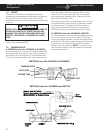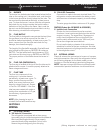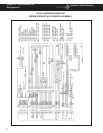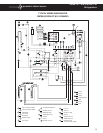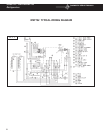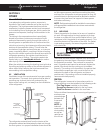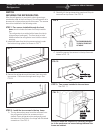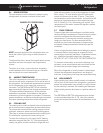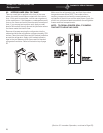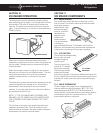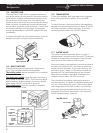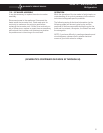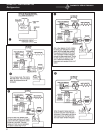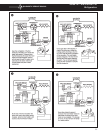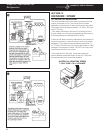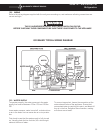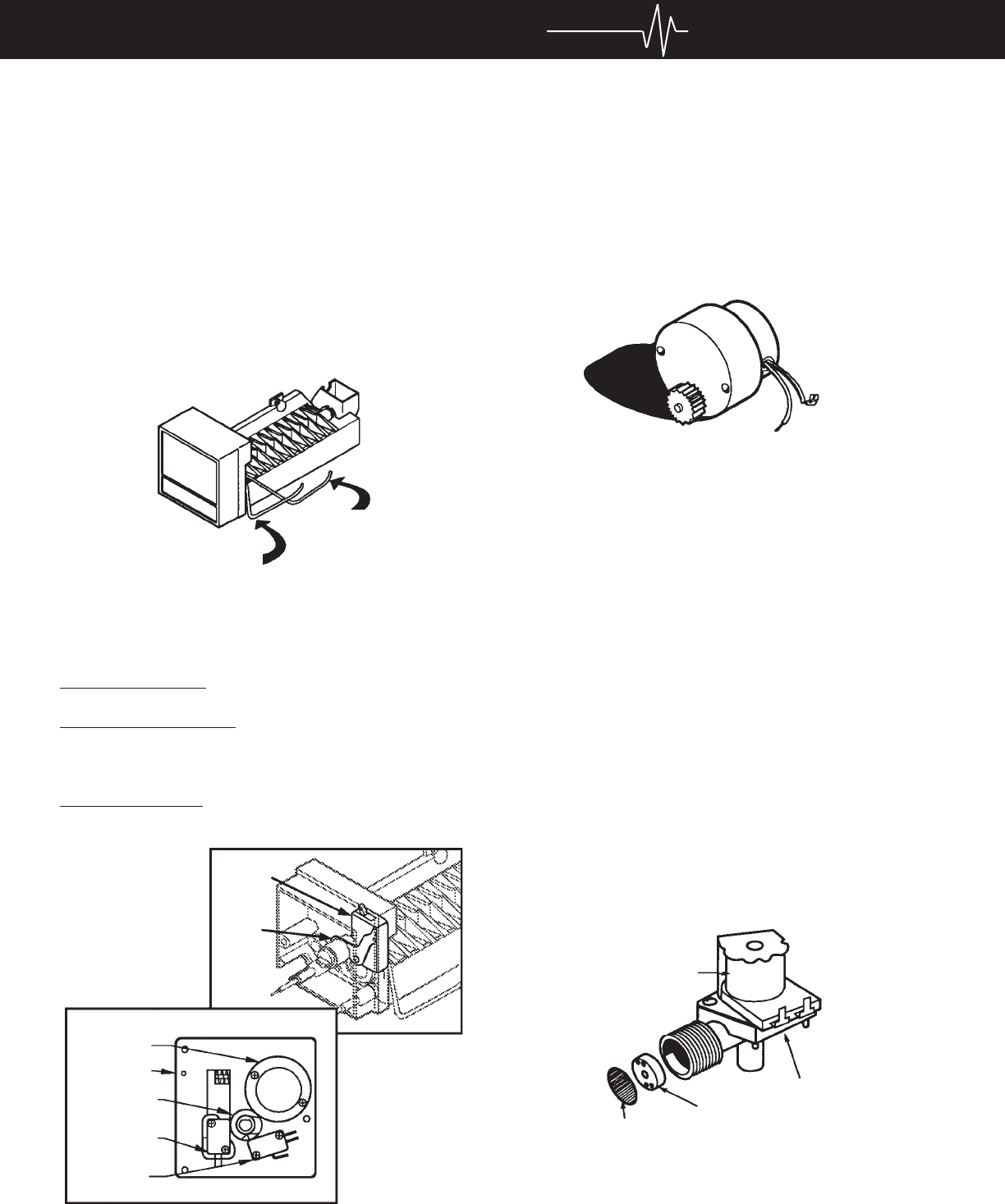
30
DOMETIC® RM7030/RM7732
Refrigerators
DIAGNOSTIC SERVICE MANUAL
11.4 SHUTOFF ARM
The shutoff arm is cam driven. It operates a switch to
control the quantity of ice produced. During the ejection
cycle the arm is raised and lowered during each of the
two revolutions of the timing cam. If the shutoff arm
comes to rest on top of the ice in the storage bin during
either revolution, the switch will remain open and stop
the ice maker at the end of that revolution. The arm has
a manual shutoff built into the linkage; by raising the
arm as high as possible, it will lock in that position until
forced down.
If the arm and switch do not operate properly, check for
damage and repair or replace parts as necessary.
11.5 MOLD SWITCHES
These three switches are single-pole, double-throw
style. They are identical and interchangeable.
The holding switch assures completion of a revolution
once a cycle has started.
The water valve switch opens the water valve during
the fill stage of the cycle. NOTE: This is the only adjust-
able component of the ice maker. If you use a double-
throw switch, DO NOT use the N.O. terminal.
The shutoff switch stops the ice maker's operation
when the storage bin is full.
ARM DOWN
ICE MAKER
WILL OPERATE
ARM UP
STOPS
OPERATION
Shutoff
SWITCH
LEVER
ARM
FRONT VIEW
MOTOR
MOUNTING
PLATE
TIMING CAM
WATER
VALVE
SWITCH
HOLDING
SWITCH
11.6 TIMING MOTOR
This is a low-wattage, stall-type motor which is geared
to the timing cam and ice ejector. It is a one RPM
motor.
To check the motor, disconnect power to the appliance
and test for continuity between the two leads. If you DO
NOT have continuity, replace the motor. If you have
continuity and the motor runs, DO NOT replace.
11.7 WATER VALVE
This valve is solenoid operated. When it is open, it
releases water from the source to the mold. The amount
of water is proportional to the length of time the water
valve switch is held closed by its timing cam.
Disconnect power to the appliance, remove the wires to
the water valve solenoid coil, and check for continuity
between the two terminals. If you have continuity, the
solenoid is good. It takes 10-15 watts to energize the
solenoid coil. The mold heater and coil are in series.
When the mold heater is activated, this causes the
voltage to drop to about 105 VAC at the coil.
The valve has a flow washer inside which acts as a
pressure regulator. A strainer is installed to prevent dirt,
rust, etc. from entering the valve. Check for any debris
which might obstruct the flow of water, or prevent the
valve from closing completely when the circuit is not
energized. Remove any obstructions. If the valve still
fails to operate properly, replace it.
VALVE BODY
WATER VALVE
STRAINER
FLOW
WASHER
SOLENOID
COIL



